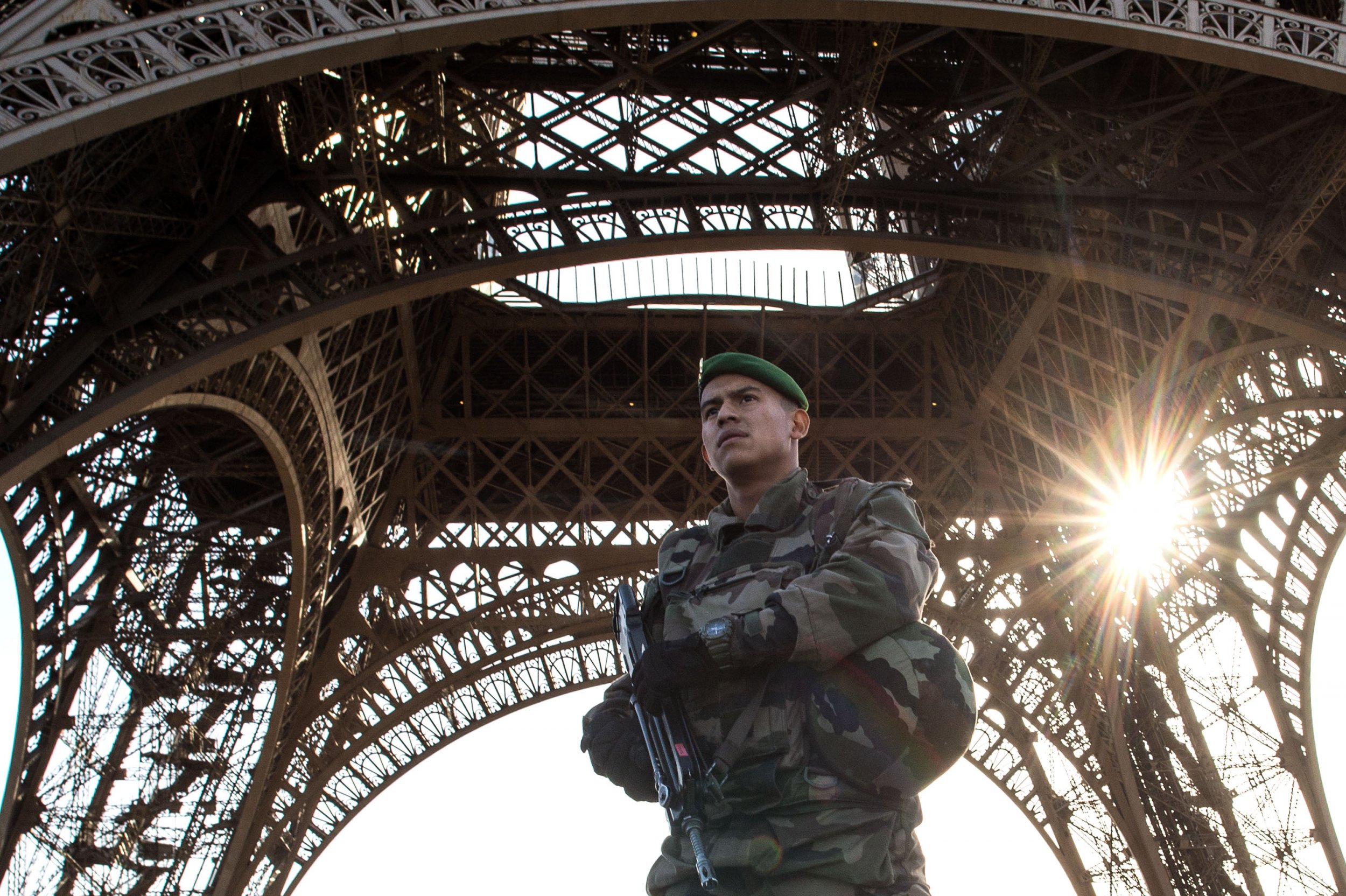
We've been spreading propaganda for the Islamic State militant group (ISIS) for years now. Everything from broadcasting the unedited footage of the Jordanian pilot, Muath Al-Kasasbeh, burning to death in a cage, to emblazoning Mohammed Emwazi on every single tabloid, menacingly taunting the West in triumph. We turned him from zero to hero; from a loser to the Che Guevara of the jihadi world.
We have to remember, terrorism is about media communication; it has been since the dawn of time and will continue to be so. It is the absolute strategic imperative of any extremist or extremist organisation to hijack mainstream media and turn isolated pinprick attacks into global media storms. Violent imagery, sensationalism, horror—it sells. The perpetrators know it and the tabloids know it and they've had a macabre symbiosis ever since.
Le Monde's decision to no longer publish imagery related to terrorist attacks or attackers is a historic moment. La Croix and France 24 have also followed suit. For major broadcast and print media houses to take such action is unprecedented and we should applaud their moral and intellectual courage for doing so. Now, I can already feel some regressive lefties' blood boiling as I write this: " Freedom of the press!" "Where does it end?" "We have a right to know! " Get a grip. Inform the public, publish the news, generate debate, but don't act as the primary communications asset for violent extremists.
The culture of sensationalism within the media is one of the prime reasons ISIS has generated such large swathes of support. Many point towards social media—yes, a source, although firms are getting very good at limiting extremist content—but it is mainstream media where the real PR battle is being won by them and lost by us. ISIS knows it and it's no wonder therefore that the group has reached the logical conclusion to become a media organization with a terrorist wing and not the other way around.
At the moment, Europe is in a daisy chain sequence of attacks, where lone attackers see the sensationalism, notoriety and global fallout that pinprick attacks generate and then are activated into doing it themselves. Instant gratification, notoriety and the knowledge of global attention is fueling the terror attacks we're seeing—it has little to do with some new mystical operational reach from Raqqa. It's the media. The chilling rapidity of these attacks is being fed by the press. Again, I'm not arguing for some sort of news blackout, but we have to be adept and sensitive about what we publish. "Celebritization" of killers is one of the biggest misdemeanors we can commit.
Nearly all of the killers in past mass shootings in the west have been found to have near pathological obsessions with other shooters. So when we see the Boston marathon bomber, Dzhokhar Tsarnaev, featured on the front cover of Rolling Stone magazine with the title: "The Bomber," we are quite literally acting as a communications asset for extremists.
Equally, there is no graver insult to the victims of terror than to help spearhead a personality cult for these monsters by publishing like this. More recently, the Nice killer, Mohamed Lahouaiej Bouhlel, has consistently been shown in multiple publications looking muscular and shirtless on the beach. Why? It adds no value, it has no relevance—it adds nothing.
This should be a no brainer; instead, the combination of sensationalism, celebritization and horror has generated a feeling of ubiquitous terror and psychological paralysis. Now, leaving out the gory parts of a news story regarding terrorism isn't going to destroy or stop those acts. But it will drastically limit the effects that they have on society, governments and the battle for narratives and ideas. After all, killing a priest in his place of worship is awful, but it's hardly going to cripple France's ability to function and govern as a state. If we starve ISIS from its media hotspots, these lone acts become tragedies and not national emergencies. Vive le monde; vive la France.
Jonathan Russell is head of policy and Joshua Stewart is the strategic communications officer at the Quilliam Foundation, a counter-extremism think tank.
Uncommon Knowledge
Newsweek is committed to challenging conventional wisdom and finding connections in the search for common ground.
Newsweek is committed to challenging conventional wisdom and finding connections in the search for common ground.
About the writer
To read how Newsweek uses AI as a newsroom tool, Click here.





